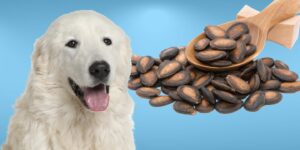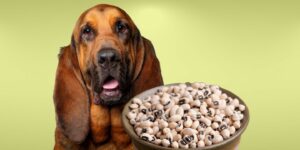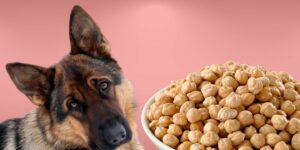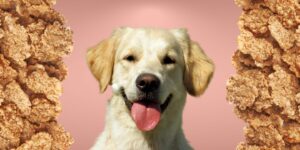The short answer to the question "can dogs eat apple seeds?" is no, dogs should not eat apple seeds. Apple seeds contain a toxic substance called amygdalin, which can release cyanide into a dog's system when ingested. This can lead to cyanide poisoning, which can be deadly for dogs. As a responsible pet owner, it is important to understand the safe and unsafe foods for your dog, and to educate others about potential dangers.
The Dangers of Apple Seeds for Dogs
Explaining Amygdalin and Its Toxic Effects
Amygdalin is a naturally-occurring compound found in the seeds of apples and other fruit. When ingested, the body breaks down amygdalin and releases cyanide, a toxic substance that can be harmful to dogs. While a small amount of apple seeds may not be enough to cause significant harm, consuming a large amount can be dangerous.
The Process of Cyanide Release in a Dog's Body
When a dog ingests apple seeds, their body breaks down the amygdalin and releases cyanide. This toxic substance can interfere with the dog's ability to produce energy at a cellular level, affecting the nervous system, causing respiratory distress, and potentially leading to death.
Comparing Apple Seed Toxicity to Other Fruits and Foods
Apple seeds are not the only fruit seeds that contain amygdalin. Other fruit seeds, such as cherry, peach, and apricot pits, also contain this toxic compound. It is important for pet owners to be aware of what human foods might be dangerous for their dogs.
Recognizing and Responding to Cyanide Poisoning in Dogs
Early Signs of Cyanide Poisoning
If a dog ingests a significant amount of apple seeds, they may develop symptoms of cyanide poisoning. These symptoms can include difficulty breathing, bright red gums, dilated pupils, vomiting, and dizziness.
The Importance of Prompt Veterinary Care
If you notice any of these symptoms in your dog after they have eaten apple seeds, it is important to seek veterinary care immediately. Cyanide poisoning can be deadly, and prompt treatment is critical for your dog's survival.
Potential Treatments and Outcomes
Treatments for cyanide poisoning in dogs may include administering antidotes, oxygen therapy, and supportive care. The outcome for a dog with cyanide poisoning largely depends on the severity of the poisoning and how quickly treatment is provided.
Prevention and Safe Apple Consumption for Dogs
Properly Preparing Apples for Your Dog
To keep your dog safe, it is important to avoid giving them apples with the seeds still in them. Instead, remove the seeds from the apple before giving it to your dog.
Alternative Apple-Based Treats for Dogs
If you want to provide your dog with a delicious apple-based treat, consider giving them small pieces of apple without the seeds or core, apple sauce (without added sugar), or even an apple-based dog treat from your local pet store.
Understanding the Safe Quantity of Apples for Dogs
While apples can be a healthy treat for your dog, it is important not to overdo it. Too much of any one type of fruit can cause stomach upset or contribute to obesity. Speak with your veterinarian about an appropriate amount of apple treats for your dog's size and activity level.
Educating Others about Apple Seed Toxicity
Raising Awareness among Dog Owners
Sharing information about the dangers of apple seed toxicity among fellow dog owners can help keep more pets safe. Make sure your friends and relatives who own dogs know about the potential dangers.
The Role of Veterinarians and Pet Care Professionals
Veterinarians and pet care professionals play a significant role in educating pet owners about potentially toxic substances, like apple seeds. Do not hesitate to consult with them about any concerns regarding your pet's diet and safety.
Frequently Asked Questions about Dogs and Apple Seeds
Can Dogs Eat Apple Cores?
Dogs should not eat apple cores, as they contain the seeds that can be toxic to them. Always remove the core before giving your dog apple slices.
Are Other Fruit Seeds Toxic to Dogs?
Yes, several other fruit seeds or pits can be toxic to dogs, including cherry, peach, and apricot pits. It is essential to remove these seeds or pits before giving your dog any fruit.
Can Apple Seeds Affect Other Pets?
Apple seeds can also be toxic to other pets, such as cats and birds. Always take precautions when feeding pets any human food to ensure their safety.
Conclusion
The importance of safe snacking for dogs cannot be overstated. As pet owners, it is our responsibility to learn about toxic foods for our pets and to educate others. Remember, dogs should not eat apple seeds, and it is essential to remove seeds and cores before giving apples to your pets. Stay informed, and keep your pet safe and healthy.











